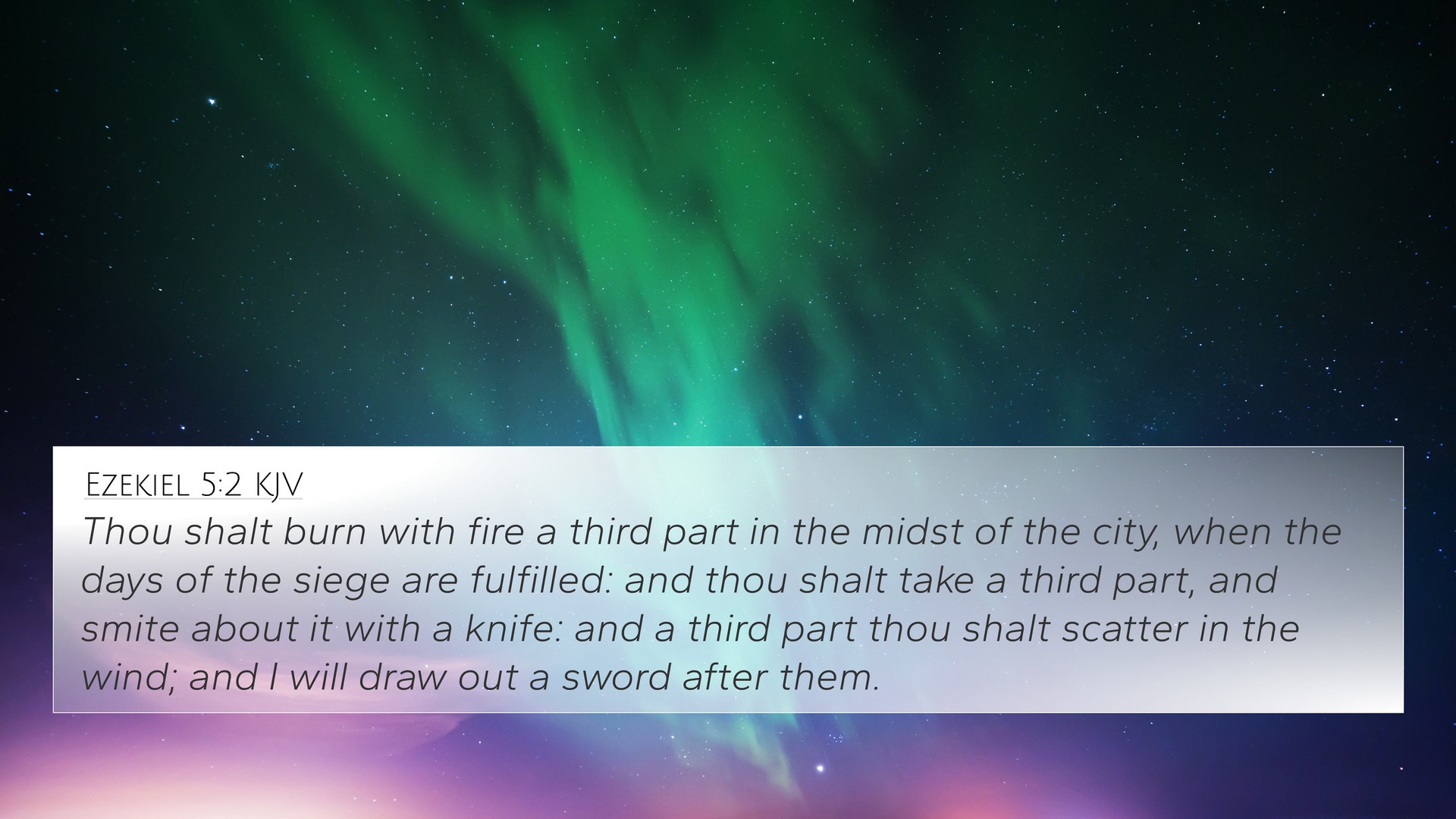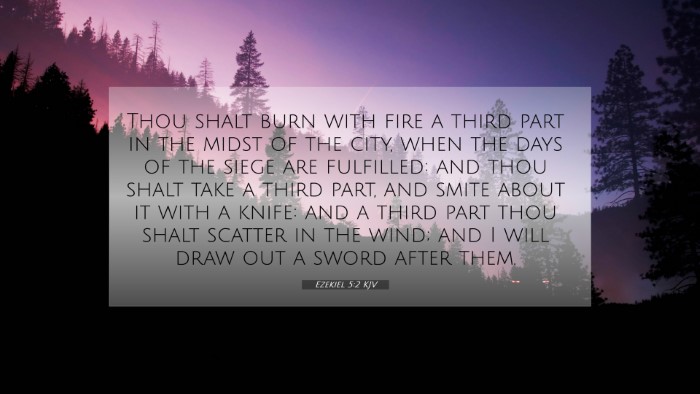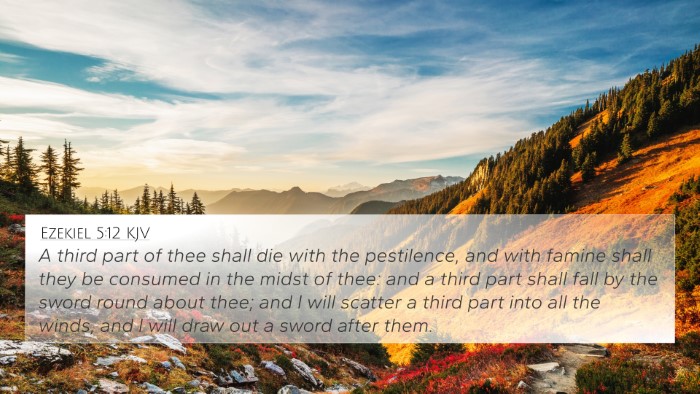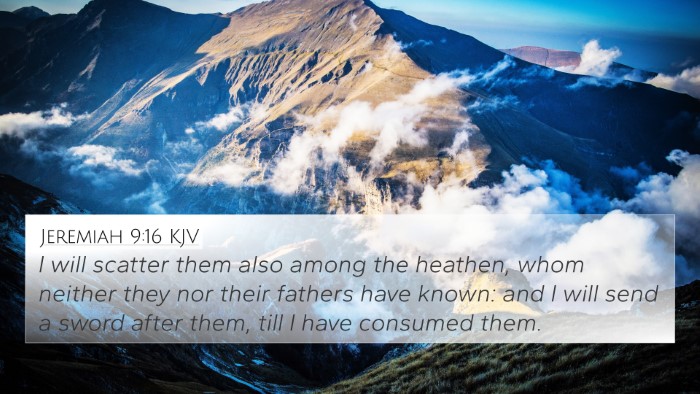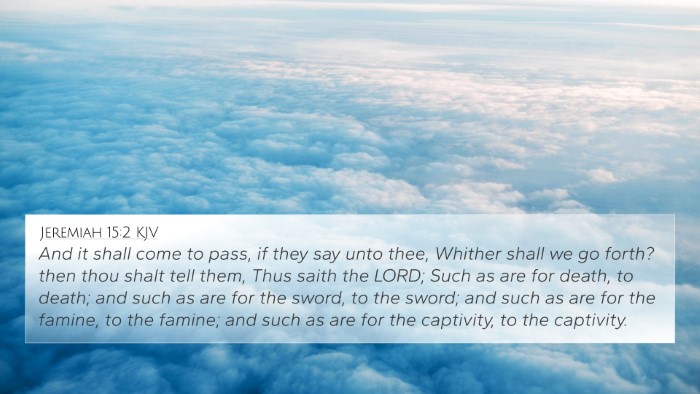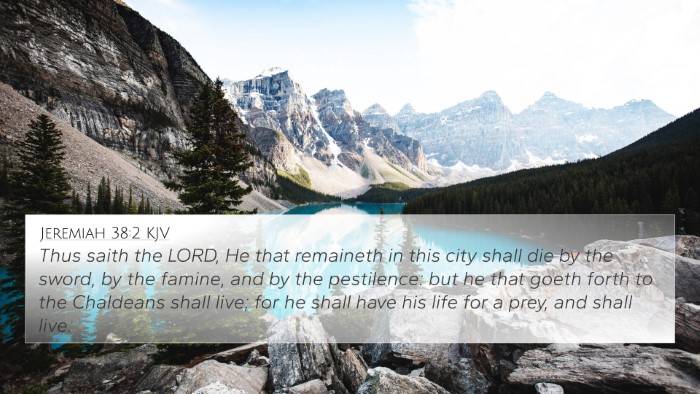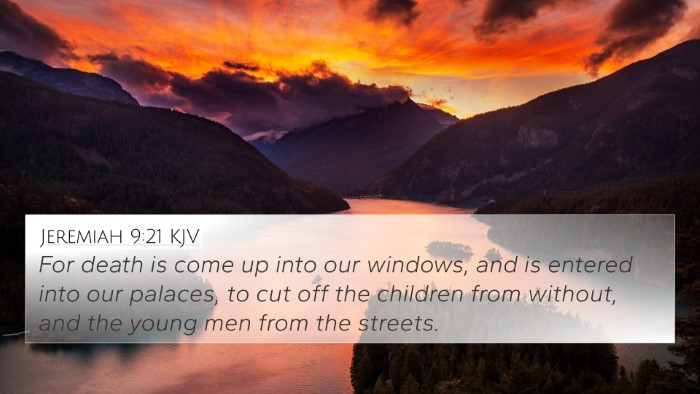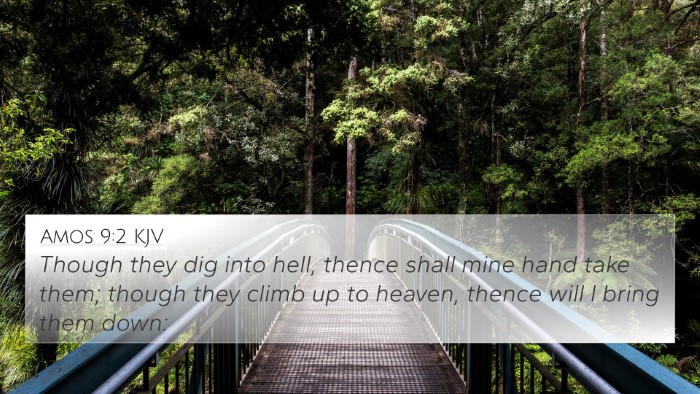Ezekiel 5:2 - Understanding the Verse
Ezekiel 5:2 states: "A third part of you shall die with the pestilence, and with famine shall they be consumed in the midst of thee: and a third part shall fall by the sword round about thee; and I will scatter a third part into all the winds, and I will draw out a sword after them."
Overview of the Verse
This verse is part of God's judgment against Jerusalem through the prophet Ezekiel. The imagery used here indicates a severe and merciless coming devastation. The division into thirds exemplifies the totality of destruction facing the populace, showcasing God's sovereignty and the seriousness of their sin.
Commentary Insights
- Matthew Henry: Henry emphasizes the severity of judgment upon the people for their unfaithfulness. The division into thirds signifies the different manners in which judgment will manifest (pestilence, famine, and warfare). God's intentions are clear; He is both a judge and a disciplinarian.
- Albert Barnes: Barnes notes that this verse serves as a stark warning about the consequences of sin. He explains that these judgments would not only lead to physical death but also a spiritual death, indicating God's disfavor. The scattering of the people symbolizes their complete loss of identity and safety.
- Adam Clarke: Clarke elaborates on the symbols within the text. He interprets the pestilence, famine, and sword as representing both literal and figurative elements of death. The act of scattering is seen as a means of fulfilling God's purposes and representing His authority over nations and peoples.
Thematic Connections
Understanding Ezekiel 5:2 requires a look at its connections with other scripture and similar themes throughout the Bible. The following Bible verses provide comparative insights and thematic connections:
- Jeremiah 34:20: This verse discusses the fates of people whom God will hand over for destruction, emphasizing divine judgment.
- Isaiah 66:16: Speaks to God's judgment through fire and those He calls, reinforcing the theme of divine wrath against the wicked.
- Revelation 6:8: Portrays a similar image of death and destruction that mirrors Ezekiel's prophetic warnings.
- Matthew 24:7: Jesus speaks of wars, famines, and pestilences, drawing an analogy to the calamities foretold in Ezekiel.
- Lamentations 1:20: The suffering of Jerusalem is echoed with expressions of despair and divine wrath.
- Ezekiel 12:14: Highlights God's plans to scatter His people, reinforcing the theme of separation and judgment.
- Deuteronomy 28:21-22: Discusses curses that include pestilence and famine, highlighting the consequences of disobedience to God.
Cross-Referencing and Themes
The richness of Ezekiel 5:2 comes from how it connects to other biblical texts, illustrating God's judgment and the disciplinary actions He employs against His people. These interconnections allow us to understand the broader narrative of scripture regarding accountability, sin, and repentance.
Tools for Bible Cross-Referencing
For those seeking to delve deeper into cross-referencing, several tools and resources can enhance your study:
- Bible Concordance: Essential for finding specific keywords and their occurrences across scripture.
- Bible Cross-Reference Guide: A structured guide that helps in identifying related verses effortlessly.
- Bible Cross-Reference System: Systems that categorize verses thematically can aid in understanding connections.
- Comprehensive Bible Cross-Reference Materials: These materials compile references from various books of the Bible to show consistency in themes.
- Bible Chain References: A systematic approach to linking verses into a cohesive narrative.
Illustrating Concepts through Cross-References
When interpreting Ezekiel 5:2 through cross-referencing, it becomes clear that understanding the prophetic warnings involves examining historical and thematic contexts. Not just looking at similar circumstances across different times and audiences, but recognizing the consistent character of God throughout His dealings with humanity.
